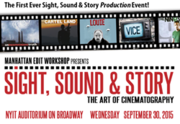New York, NY (Top40 Charts) Adopting a Musical Persona to Explore His Creativity More Freely, Singer
Martin Walker (as Alter-Ego, Performer Art Schop,) is Inspired by the Lives and Works of
David Bowie, Lou Reed, Will Oldham, Richard Wagner, Michelangelo, Sappho and Others, via Esoteric Rock Album 'Death Waits I -
Music & Fine Arts'
A Wonderfully Complex, Literate Creation
Album Package Features
Stunning Portraits and Illustrations by Eric Collins; Huffington Post Premieres First Video
Performer Art Schop is the alter ego of singer-songwriter, writer, philosopher and technologist
Martin Walker. On his new rock album 'Death Waits I -
Music & Fine Arts,' Schop pays homage to the lives and works of a diverse, esoteric range of cultural and historical figures, including
David Bowie, Lou Reed, Will Oldham, Richard Wagner, Michelangelo, Sappho and more. Walker talks about his complex creation in this EPK interview: https://youtu.be/8vXrXvJFCQo . A transcript of the full EPK conversation is viewable, here: https://artschop.com/epk
Each 'biography song' on the album is a thoughtful vignette - a literate piece of art in which Schop may emulate the vocal mannerisms of the song's subject (as in the Bowie-inspired 'Back to Earth',) or take the listener on a dark journey (as driven by Wagner's "Tristan Und Isolde" in Schop's 'The Sun Deceives'). This is a dense, multi-dimensional collection in which Walker performs as Schop who performs as Bowie and so on. Walker describes the concept as follows:
"I started writing and recording as Art Schop to free myself from the singer/songwriter label musically and lyrically. I was creating arrangements that were integral to the song, and writing lyrics that explored themes and ideas that went beyond my personal experience. I wrote a song ("I Am Lost") about Arthur Schopenhauer, a personal favorite of mine, which gave me the inspiration for the Art Schop name. A song could come from anywhere--the pungent dreams of a philosopher, a scientific discovery, the sale of a sculpture. I found myself writing a lot of biography songs; songs that focused a particular lens on a person's life. The songs about artists became a compelling and coherent subset of these. When it came time to record, the collaboration with Jimi Zhivago introduced an inherent tension between my typically dark, dissonant bent, and his more traditional pop and rock influences.
Everything in the arrangements was negotiated until we were both happy, or we would throw it out and start again. What resulted was a musical fusion that allows the listener to feel uplifted and transported despite the melancholy subject matter."
HUFFINGTON POST
Exclusive Video Premiere
9/9/15, by Michael Ragogna -
Huffington Post premiered Schop's music video for the track'The
Prince of Darkness' -- https://www.huffingtonpost.com/mike-ragogna/midnight-mccartney--the-u_b_8110562.html
Schop provided this accompanying text to HuffPost:
"The madrigal composer Don Carlo Gesualdo fascinated me not only because he was a groundbreaking genius, but also because he had murdered his first wife and her lover in cold blood. Here was a man who aspired to the highest ideals of beauty and art, and yet who as a person was reprehensible in many ways. Originally, 'The
Prince of Darkness' was a classically inspired folk song, but then Jimi Zhivago and I hit on a sleazy seventies-inspired groove which seemed kind of perfect. With John Bosch's video, the hard part was to go easy on the blood!""
Youtube link, here: https://www.youtube.com/watch?v=f0w5tOvfI_w
Each song on 'Death Waits I' is accompanied by a stunning portrait or illustration within the album jacket, courtesy of artist Eric Collins. This striking visual element, coupled with Walker's song notes and lyrics, provides a subtle road map to the intellectual and musical journey that awaits.
Walker adds:
"…the more that the songs came, and the more I [thought] about it, the more I realized that there is a question behind the work, which is, why do people create art? What prompts them to do it, what inspires them to do it, what keeps them doing it, and what are they trying to do with their art? And there's also this kind of... particularly, with the artists that I wrote songs about, there's this... they could not possibly do anything else... even if they tried to, they couldn't give up. There's something very driven about their need to create beauty. And in some ways, it's an open question. In some ways, the songs explore what some of the answers might be. There's this idea that art is a way of working through pain, of creating something beautiful out of something that was really hard or painful."
Song notes - from booklet text:
David Bowie - Back To Earth
David Bowie's ascent to overnight super-stardom took several long years. But Bowie had conviction, and "never did anything by halves," as the English say. Throwing everything behind the song Space Oddity and timing its release to coincide with the first moon landing, Bowie was gambling big at a critical point in his career; but it paid off. Extra-terrestrial themes recurred in Bowie's work. His Ziggy
Stardust character became such a powerful force that it subsumed its creator. Paranoid, estranged, coke-addicted, for a while Bowie became an alien to himself. But unlike Major Tom, Bowie did not drift off into the stratosphere. He came back.
Death Waits I
Death Waits I is adapted from Jacques Brel's song "La Mort," with new music, and revised and extended lyrics.
Don Carlo Gesualdo - The
Prince of Darkness
On October 16, 1590, Italian prince and madrigal composer Don Carlo Gesualdo murdered his wife and her lover in cold blood. He went on to remarry, and was unfaithful and abusive to his second wife. Gesualdo also created devilishly beautiful compositions, introducing new and dazzling chromatic harmony, the like of which would not be heard again until Wagner, two and a half centuries later.
Richard Wagner - The Sun Deceives
Does death promise truth and release? Has the sun deceived us with its warmth and light? Richard Wagner's opera Tristan Und Isolde throbs with the dark shades of Schopenhauer's grim philosophy: that while we strive endlessly for happiness and satisfaction, we strive in vain. Isolde attempts to poison Tristan, her mortal enemy, but her spell reverses, instead causing them to fall in love. Cursed in this life to be kept apart as mortal enemies, only in death can they be free, finally, to love.
Will Oldham - Again
We are not the same person we were yesterday, an hour ago, a minute ago. Our cells age, die, become replaced. Our thoughts and feelings shift. Events modify our place in the world. In "Will Oldham on Bonnie 'Prince' Billy," Will Oldham describes the feeling of newness and unfamiliarity that sometimes inhabits him when he faces a new day. And if we have no sameness, where is the path? Do we have a path? Oldham asks and avoids answering, answers and avoids asking. And yet in his music we hear always the clear, intelligent voice of an individual.
Michelangelo - Just A Lombard Cat
Michelangelo's mother fell ill and died when he was a child. His father sent the boy to live with a stonecutter and his family. "Along with the milk of my nurse I received the knack of handling chisel and hammer," he wrote. Michelangelo always considered himself a sculptor rather than a painter. But he could not refuse the commission of Pope Julius II to paint the ceiling of the Sistine Chapel. The commission stretched into a four year labor of incredible scope, beauty, skill, and torment. Hung beneath the ceiling for hours at a time, forever spattered with paint, Michelangelo became contorted, "like a cat from Lombardi." But the physical indignities paled in comparison to Michelangelo's fear that he was unequal to the task at hand: "My painting is dead," he lamented in a letter to a friend, "Defend it for me, Giovanni. Protect my honor. I am in the wrong place - I am not a painter."
The song references, in part, Michelangelo's poem The Lover and The Sculptor.
Sappho - Song Before Dying
We don't have any record of Sappho's music, only fragments of the words she sang. But according to Stobaeus's Florilegium, Solon once asked his nephew to teach him a song of Sappho's that the boy had just sung him. When asked why, Solon responded "So that I may learn it, then die."
In the lyric fragment, Sappho 31, as Sappho sings to newly-weds in their nuptial chamber, her words betray her feelings toward the bride. Song Before Dying refers to Sappho 31 and adheres to the form of the Sapphic stanza.
Lou Reed - The Thistle And The Thorn
In the song Perfect Day from Lou Reed's 1972 solo album Transformer, time stands uneasily still as Reed and his lover enjoy a listless day together, visiting the zoo, drinking Sangria in the park. The implication of perfection is unreliable: "You made me forget myself," Reed sings, "I thought I was someone else, someone good."
Lou Reed made art from imperfection, exploring the uncomfortable no-man's-land between what is and what might have been. When he visited Taormina thirty two years later, Reed stayed in a four star hotel, nestled in the hills high above the Sicilian coast. Idyllic, perhaps, but, for Reed, one can imagine that it was not perfect.
Alberto Giacometti - Insubstantial Man
A trip to Padua as a young man kindled Alberto Giacometti's love of art. It became his obsession to show reality not as it could be measured but as it appeared, whittling away at his early works until they were no more than matchsticks. Giacometti's tall, impossibly thin sculptures (Walking Man, Man Pointing, City Square) emerged as products of his nocturnal and contracted existence in Paris, as a mature artist. They seem to shrink from the eye, refracting the gaze, and emphasizing the space around and between people.
(Caroline was a Parisian prostitute who fascinated Giacometti and became his muse and his mistress. Giacometti was dedicated to his younger brother, Diego.)
More About Art Schop:
Brooklyn's Art Schop records and performs contemporary rock that is "a mixture of Murder Ballads, Songs from a Room, and Hunky Dory." By exploring historical and contemporary ideas and characters Art Schop's music illuminates themes and subjects that seem at once unexpected and bizarrely appropriate to the rock genre. Art Schop is the alter-ego of singer-songwriter, writer, philosopher and technologist,
Martin G. Walker. When Walker began deviating from the standard singer-songwriter idiom and started writing songs about ideas and people that struck deeply into the human condition, he created a new voice, the voice of Art Schop - the name is a call out to Walker's favorite philosopher, Arthur Schopenhauer. Influenced musically and lyrically by the likes of Scott Walker, Leonard Cohen,
David Bowie, Nick Cave, The Tindersticks,
Pink Floyd and Bonnie
Prince Billy, Art Schop incorporates a diverse array of classic and contemporary rock and experimental sonic elements into his music.
Art Schop has just finished recording the first of two records that tell the stories of the lives and works of a variety of artists including
David Bowie, Lou Reed, Michelangelo, Sylvia Plath,
James Joyce, and Sappho.
https://www.artschop.com/home
https://www.facebook.com/ArtSchop
https://twitter.com/ArtSchopBand
























